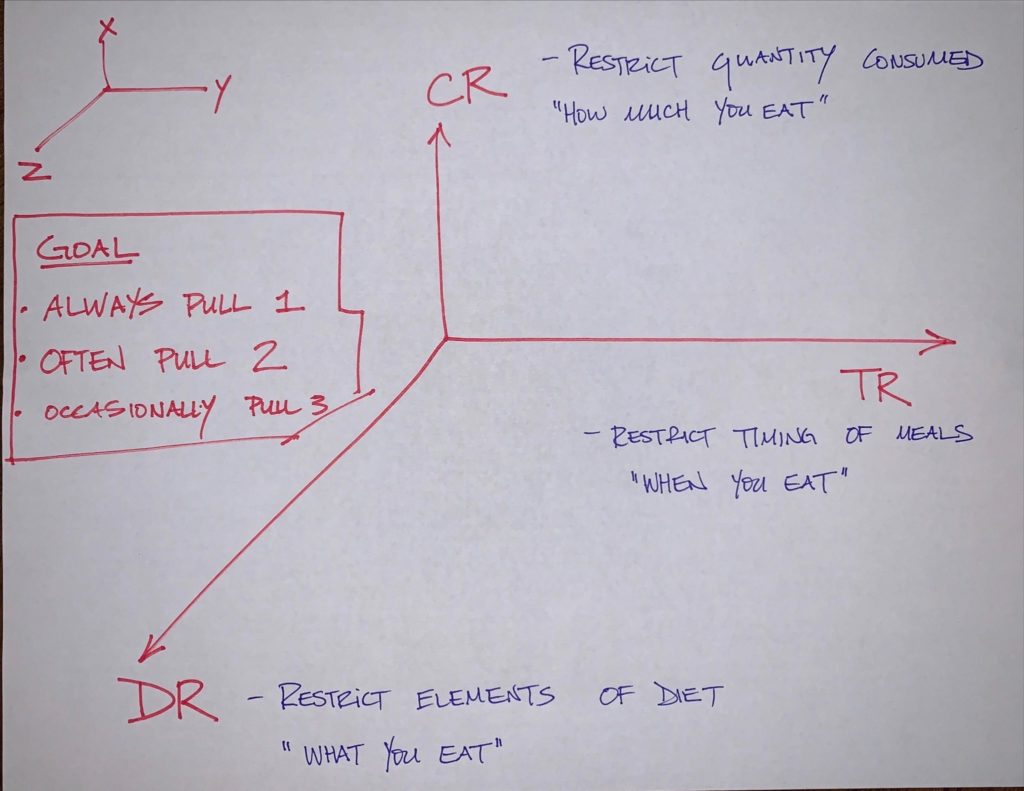01. The Enlightenment Leverage Point
I’ve been passionate about systems analysis for a long time without knowing that it’s called systems analysis. Discovering this article by Donella Meadows has opened me up to a whole new world…
Fretting about systems of all kinds comes naturally to me. I devoted my undergraduate to fretting about the effects of political and economic systems on the planet and its inhabitants. Professionally, I apparently obsess about the operating systems which define how team’s function.
The article focuses on a part of systems analysis called leverage points. Leverage points are “places within a complex system… where a small shift in one thing can produce big changes in everything,” akin to levers we “pull” in business to produce favorable outcomes.
Every time we seek specific results or want to influence behavior, we’re actually thinking about where to intervene in a system. Meadows identifies 12 places to intervene in a system in increasing orders of effectiveness from constants, parameters, and numbers, such as subsidies, taxes, standards to “the mindset or paradigm out of which the system — its goals, structure, and rules — arises.” Ultimately, which I like that she doesn’t leave out and cements my admiration for this woman, Donella reminds us that it isn’t even about “shifting the paradigm” but about transcending the paradigm:
“There is one leverage point that is even higher than changing a paradigm. That is… to realize that NO paradigm is ‘true,’ that every one, including the one that sweetly shapes your own worldview, is a tremendously limited understanding of an immense & amazing universe that is far beyond human comprehension … It is to let go into Not Knowing, into what the Buddhists call enlightenment.”
–Donella Meadows
02. Here’s Why I’m Not Into Permaculture
I’ve been throwing around the term ‘permaculture’ for a couple years now, saying things like “I want to learn permaculture design,” “because permaculture,” “permaculture,” looking into “permaculture courses,” and so on. But that’s before I was introduced to natural farming, a concept by Masanobu Fukuoka largely detailed in his book, One Straw Revolution. This article compares and contrasts permaculture with natural farming. Reading about permaculture in the context of natural farming really reinforced the superior wisdom of natural farming for me.
I first heard of the One Straw Revolution from my former & forever-in-spirit boss, Ben Greenfield. I, from a place of deep knowing, realized instantly I must read this book!
One Straw Revolution outlines Fukuoka’s approach to “do-nothing” farming, or, farming while intervening the least with nature. It’s a profound philosophical manifesto on how the best forms of cultivation favor nature’s intelligence over human “innovation,” which it turns out, is what permaculture is all about.
Permaculture design places human innovation and human management at the forefront of its approach. “The practice of ‘observing nature’ … presupposes an observer and something that is being observed… [thus] the separation from nature is built into the process from the beginning…” It is this reliance on the human intellect which moves permaculture outside the realm of natural farming. Permaculture is just more centralization, organization and more of humans knowing what’s best for nature instead of nature itself.
The excellent article above on permaculture vs. natural farming is from the Chelsea Greene Publishing website. Chealsea Greene is a “leading publisher of books about organic farming, gardening, homesteading, integrative health, natural building, sustainable living, socially responsible business, and more.” Actually, I coincidentally started following Chelsea Greene on Instagram before I ever read the article above. Chelsea Greene publishes beautiful books about many of my favorite topics. Browse their collection here.
03. My New Dream Trip Is…
Joe Rogan and David Sinclair, Ph.D., A.O. discuss Sinclair’s new book, Lifespan: Why We Age And Why We Don’t Have To. Sinclair is a Professor in the Department of Genetics and co-Director of the Paul F. Glenn Center for the Biology of Aging at Harvard Medical School. Their previous episode together is also very good, in which Sinclair shares his expertise on advanced tactics for increasing lifespan. This recent episode is more entertaining than their previous one, as they digress into a lively discussion about Sinclair’s trip to the cradle of civilization, primal instincts and more.
04. On “Analytics”
“Analytics” is another word I like to throw around. Here, Harvard Business Review classifies analytics into 3 distinct types:
- Descriptive analytics involve gathering a describing data
- Predictive analytics use data from the past to predict the future
- Prescriptive analytics suggest a course of action.
Describing a problem, predicting what could happen and prescribing solutions are the fundamental functions of analytics. Thomas H. Davenport, a professor at Babson College, elaborates more in this brief explainer video.
05. Exactly How to Avoid Eating the “SAD” Diet (It’s Easy!)
This little formula / framework / infographic from Peter Attia is awesome! “CR” means calorie restriction, “DR” means dietary restriction and “TR” means time restriction. If you’re not occasionally, often or always pulling 1 of these levers, then you’re eating the Standard American Diet. I just love how simply he lays this out.
